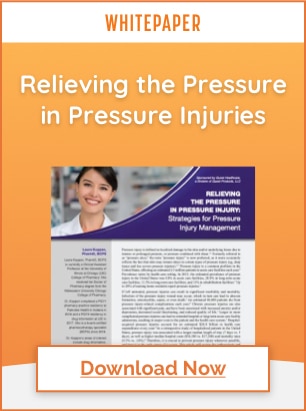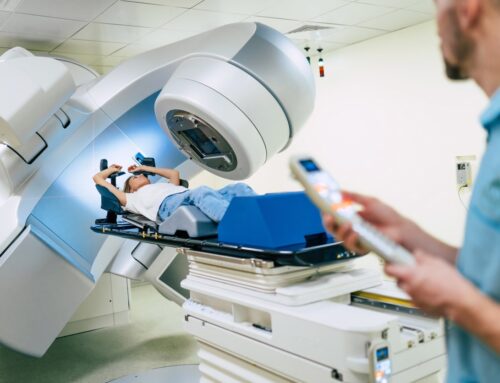
Bowel Care Issues Related to Multiple Sclerosis
Constipation is the most common gastrointestinal condition for patients with Multiple Sclerosis (“MS”), with approximately 35% of patients experiencing constipation. One quarter of people with MS report at least one instance of incontinence per week.
Some common causes of constipation caused by MS include reduced and/or limited patient physical activity, decreased movement of food through the intestinal tract, weakened abdominal muscles (which make bowel movements more difficult), relaxing of pelvic floor muscles, poor dietary habits, and dysfunctional signals between the bowel and brain.
MS can decrease sensation in the rectum which may result in the loss of the urge to eliminate. Certain medications can also increase the risk of constipation, including anti-spasticity medications, overactive bladder medications, painkillers, antidepressants, and high blood pressure medications.
Symptoms of Constipation and Fecal Incontinence
Symptoms of constipation include bloating and pain in the lower abdomen, straining to pass stool, less frequent bowel movements (typically fewer than three bowel movements per week), hard, dry, or small feces, and an incomplete evacuation of the bowel.
The weakening of pelvic floor muscles in MS patients makes them more prone to fecal incontinence. Symptoms of fecal incontinence can range from small leakage of stool and/or gas to the total inability to control bowel movements.
The external sphincter can be weakened by MS, resulting in watery and/or loose stool. A bowel “accident” may be the first indication an MS patient has to signal that incontinence is becoming a problem.
Bowel Management for Multiple Sclerosis Patients
To relieve constipation symptoms in MS patients it’s important to perform an assessment for neurogenic bladder dysfunction, side effects of medications, and lifestyle issues like hydration and diet. To determine the effectiveness of any constipation protocol allow up to four weeks for a laxative regimen before moving on to explore alternative options.
Types of medications that can produce or worsen constipation in MS patients include:
- Tricyclic antidepressants
- Narcotics/Analgesics (sedatives, painkillers, tranquilizers)
- Antibiotics
- Diuretics and Antacids
- Antihypertensives
- Anticholinergics
Docusate Sodium Enemeez® & DocuSol® Mini-Enemas have been trusted by patients and healthcare facilities for 17+ years. Click here, to request samples.
Bowel and Bladder Dysfunction in Multiple Sclerosis Patients
When a patient is experiencing a combination of bowel and bladder dysfunction, bladder issues should generally be treated first. Some MS patients restrict their daily fluid intake in an attempt to reduce bladder symptoms like urinary urgency, frequency, and incontinence, which exacerbates risk of constipation.
When stool becomes desiccated the resulting slowed stool movement through the gastrointestinal tract produces or worsens constipation. The increased mass of stool in the rectum caused by constipation also puts pressure on the bladder and can be contributing to urinary urgency, frequency, and incontinence.
Bowel Management Programs for Multiple Sclerosis Patients
Patient behavioral and lifestyle intervention through a bowel management program creates a predictable routine that helps avoid bowel and bladder accidents and increases a patient’s quality of life.
A predictable bowel movement routine trains the bowel, prevents accidents, softens stool, decreases spasticity, and improves interruption of bladder function (from stool buildup in the rectum).
[View Full Chart Here]First thing in the morning and half an hour after a meal and/or exercise are ideal times to perform a bowel management program. Creating a predictable mealtime routine that works in conjunction with the bowel management program is also helpful.
Performing abdominal massage can improve gut transit time and ease bowel management. If needed, digital stimulation by the patient or caregiver can be performed to trigger the rectum for stool evacuation.
Lifestyle Changes to Promote Regular Bowel Movements
Lifestyle changes that help promote regular bowel movements and reduce symptoms of constipation and/or incontinence are important.
Hydration: Ideally patients should drink 8-12 cups of non-diuretic fluid daily to moisten stool and make them easier to pass.
Physical Activity: Patients should maintain an appropriate level of physical activity to promote peristalsis.
Fiber Intake: Consuming a proper amount of daily dietary fiber from whole grains, fruits, nuts, seeds, and legumes can help prevent and/or alleviate constipation. Avoid foods that can exacerbate constipation such as dairy and red meat.
Positioning: ensure proper positioning during defection (squatting is the most desirable position).
Caffeine and alcohol can contribute to bowel dysfunction and should be reduced or eliminated. Sugar, unhealthy fats, and sodium should also be consumed moderately or eliminated altogether.
Laxative Categories, Potential Side Effects, and Effectives for Constipation
After implementing lifestyle changes, laxatives can also help resolve patient constipation, and the type of laxative used to relieve constipation in MS patients depends on the severity and duration of patient symptoms.
Here is a breakdown of some of the different types of laxatives, potential side effects, and other elements to consider. Seek the advice of a healthcare professional regarding which type of laxative is appropriate:
- Emollient Stool Softeners contain the active ingredient docusate sodium or docusate calcium, and are generally considered to be gentle and well-tolerated.
- Lubricant Laxatives contain mineral oil that coats stool to help it move more easily through the gastrointestinal tract, and help prevent stool dehydration. Mineral oil is not for use on a regular basis, as it can interfere with the absorption of fat-soluble vitamins A, D, E, and K, and it can also have detrimental interactions with certain medications.
- Bulking Forming Laxatives usually contain the active ingredients psyllium, methylcellulose, or calcium polycarbophil, and work by increasing stool volume to accelerate stool movement through the GI tract and increasing the urge to defecate. Bulk forming laxatives may also be effective when addressing fecal incontinence.
- Osmotic Laxatives may contain the active ingredients polyethylene glycol or glycerin and retain fluid in the bowel. These help soften the stool to move more easily through the intestinal tract.
- Saline Laxatives may contain the active ingredients magnesium citrate, magnesium hydroxide, or sodium phosphate, which draws more water into the intestine, softening stool and stimulating movement through the intestines. Saline laxatives are not commonly considered safe for use on a regular basis and can cause dehydration and electrolyte imbalance.
- Stimulant Laxatives may contain the active ingredient bisacodyl, which stimulates the bowel to increase stool motility. While stimulant laxatives can produce a bowel movement quickly, they may have unpleasant side effects and should not be used on a regular basis as they can cause dehydration, electrolyte imbalance, bloating, gas, and abdominal pain.
Enemeez® and DocuSol®, Trusted by Healthcare Facilities for 17+ Years
Fast-Acting, Gentle & Easy to Use
The Enemeez® formulation functions as a stool-softening, hyperosmotic laxative by drawing water into the bowel from surrounding body tissues. The docusate sodium in the mini-enema product acts as a softener by preparing the stool to readily mix with watery fluids. The increased mass of stool promotes bowel evacuation by stimulating nerve endings in the bowel lining and initiating peristalsis.
Not only does Enemeez® soften and loosen the stool, but it initiates a normal, replicated bowel movement, typically within 2-15 minutes; no waiting overnight!
Enemeez® Plus contains 20mg of benzocaine, assisting in the anesthetization of the rectum and lower bowel.
The DocuSol® mini-enema delivers 283mg of docusate sodium and functions as a stool softener hyper-osmotic laxative by drawing water into the bowel from surrounding body tissues, softening the stool and promoting a bowel movement, also typically within 2-15 minutes.
Like Enemeez® Plus, DocuSol® Plus contains an additional 20mg of benzocaine, assisting in the anesthetization of the rectum and lower bowel.
Request product samples or schedule an in-service or webinar to learn more about Enemeez® and/or DocuSol® products.
>> REQUEST IN-SERVICE OR WEBINAR
Disclaimer: The material contained is for reference purposes only. Alliance Labs, LLC and Summit Pharmaceuticals do not assume responsibility for patient care. Consult a physician prior to use. Copyright 2020 Summit Pharmaceuticals and Alliance Labs, LLC.
Sources:
- ‘Highlights of Symptoms – Bowel Management in MS’ by Aliza Ben-Zacharia, DNP, ANP, MSCN
- ‘Bowel Problems: The Basic Facts, Multiple Sclerosis’ by Nancy J. Holland, RN, EdD, and Robin Frames
- ‘Bowel Management in Multiple Sclerosis’ by Nancy J. Holland, RN, EdD and Patricia Kennedy, RN, CNP, MSCN
- https://mymsaa.org/ms-information/symptoms/bowel-problems/








